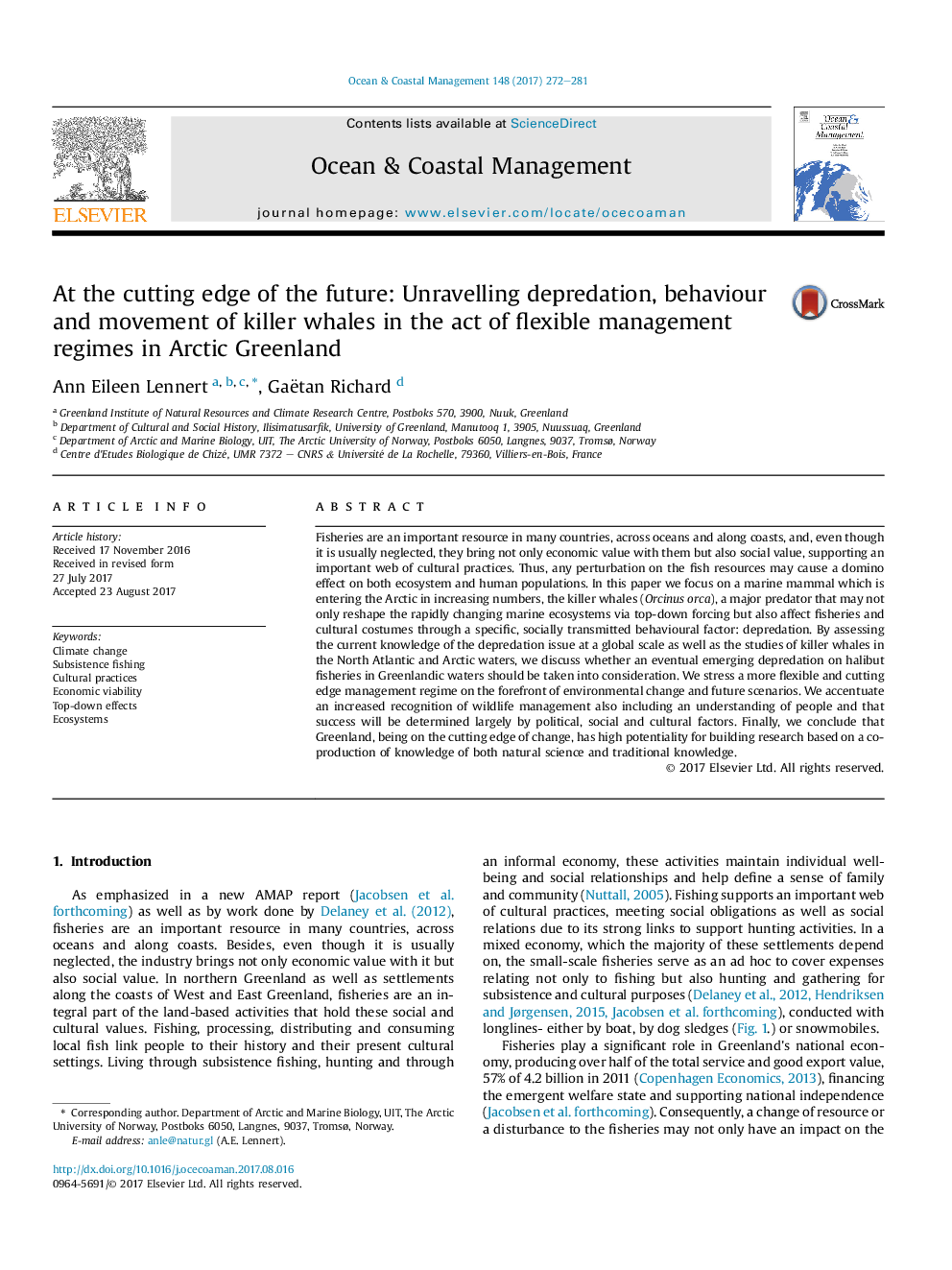| Article ID | Journal | Published Year | Pages | File Type |
|---|---|---|---|---|
| 5473860 | Ocean & Coastal Management | 2017 | 10 Pages |
Abstract
Fisheries are an important resource in many countries, across oceans and along coasts, and, even though it is usually neglected, they bring not only economic value with them but also social value, supporting an important web of cultural practices. Thus, any perturbation on the fish resources may cause a domino effect on both ecosystem and human populations. In this paper we focus on a marine mammal which is entering the Arctic in increasing numbers, the killer whales (Orcinus orca), a major predator that may not only reshape the rapidly changing marine ecosystems via top-down forcing but also affect fisheries and cultural costumes through a specific, socially transmitted behavioural factor: depredation. By assessing the current knowledge of the depredation issue at a global scale as well as the studies of killer whales in the North Atlantic and Arctic waters, we discuss whether an eventual emerging depredation on halibut fisheries in Greenlandic waters should be taken into consideration. We stress a more flexible and cutting edge management regime on the forefront of environmental change and future scenarios. We accentuate an increased recognition of wildlife management also including an understanding of people and that success will be determined largely by political, social and cultural factors. Finally, we conclude that Greenland, being on the cutting edge of change, has high potentiality for building research based on a co-production of knowledge of both natural science and traditional knowledge.
Keywords
Related Topics
Physical Sciences and Engineering
Earth and Planetary Sciences
Oceanography
Authors
Ann Eileen Lennert, Gaëtan Richard,
